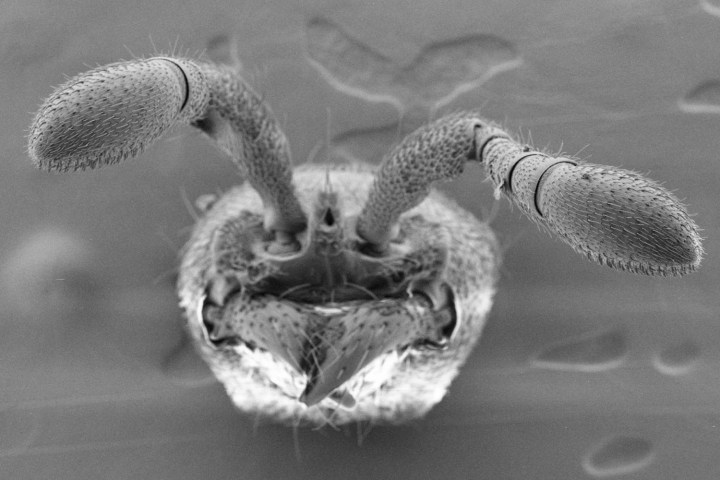
The two research teams used the revolutionary gene-editing tool CRISPR to edit the genome of ant eggs, in order to knock out an olfactory-related gene called orco (odorant receptor coreceptor). Without orco, ants can’t perceive odors. The researchers found that this causes them to become asocial, since they can’t pick up on the pheromones and chemical cues that they usually use to communicate.
“We chose to knock out a gene that would have a strong phenotype without killing the animal,” Claude Desplan, a professor at New York University who worked on one of the studies, told Digital Trends. “Many genes are lethal and thus not informative for adult phenotypes. Orco would make the ant anosmic — not smelling anything. Since ants rely a lot on pheromones for communication, we hoped to get an asocial phenotype, which we did.”
The two teams were able to generate colonies of edited ants by focusing on specific species with peculiar traits.
Desplan and his team — including researchers from NYU, Arizona State University, Vanderbilt University, and the University of Pennsylvania — experimented on Indian jumping ants, unusual for the ease with which they can transform from workers into queens. When a queen dies, the worker ants in the colony battle it out, asserting dominance until one of them is crowned a “pseudoqueen” and begins to lay eggs.
In the lab, the researchers manipulated the genome of worker ants, causing them to convert from workers to pseudoqueens, lay eggs, spread their genes, and create new colonies.
A separate research team at The Rockefeller University worked on clonal raider ants, peculiar in that the colony doesn’t have a queen but instead propagates as clones.
In both cases, knocking out the orco gene caused the ants to lose olfactory perception, causing them to wander aimlessly and asocially. The researchers also noticed a change in brain anatomy in the regions that process smell.
“[Ants] have a very sophisticated form of social organization while being simple insects with a small genome,” Desplan explained. “Furthermore, almost all behaviors are innate and thus encoded in genes — this would allow us to get access to genes controlling social behaviors.”
Two papers detailing the research were published last week in the journal Cell, here and here.


